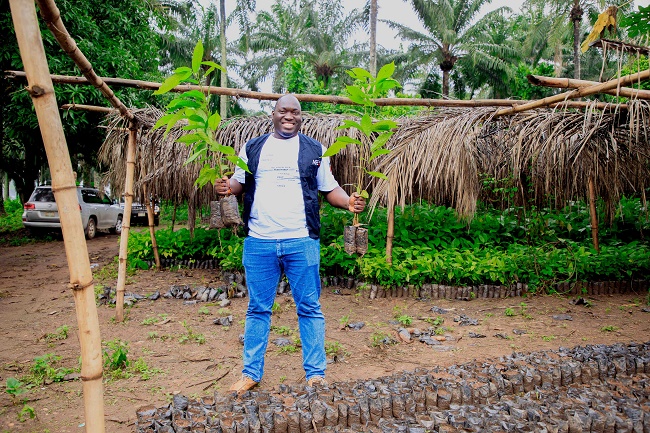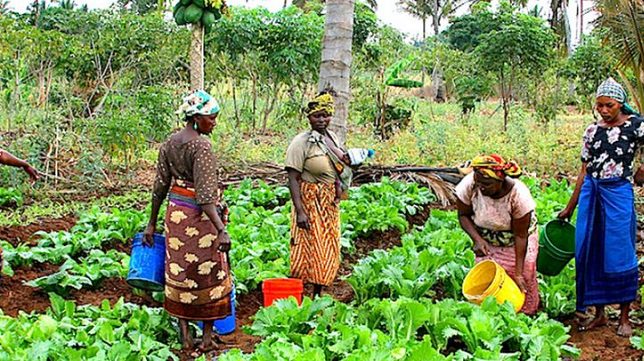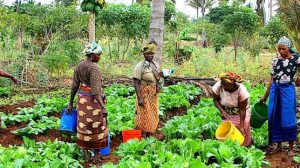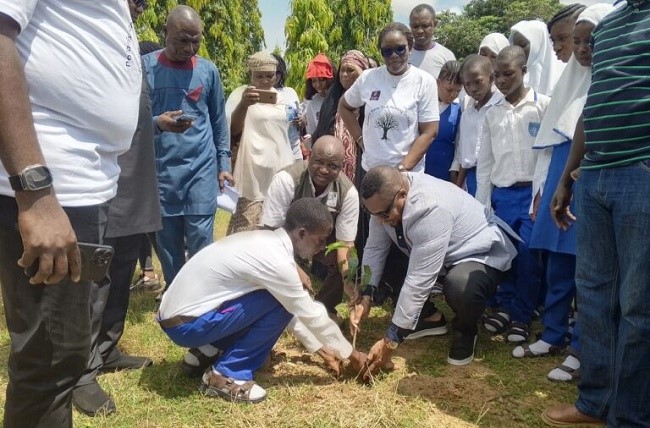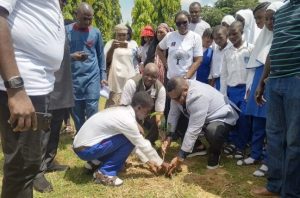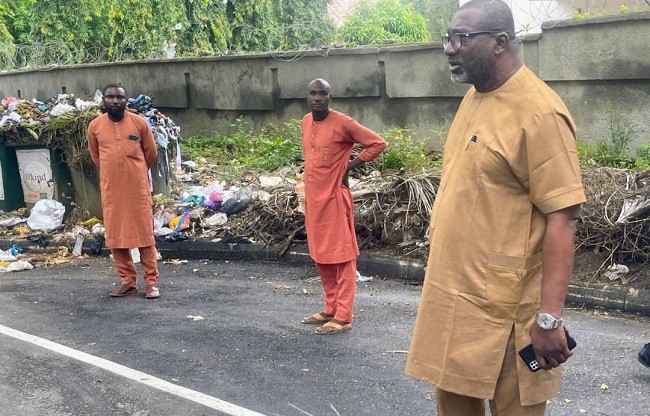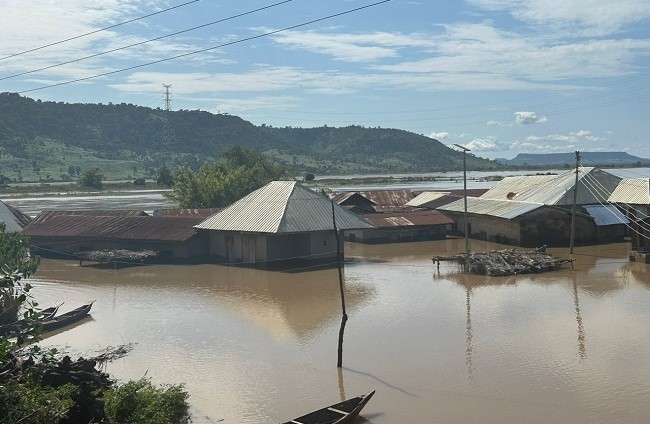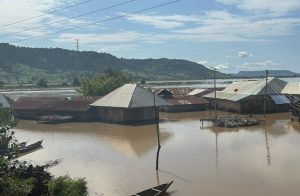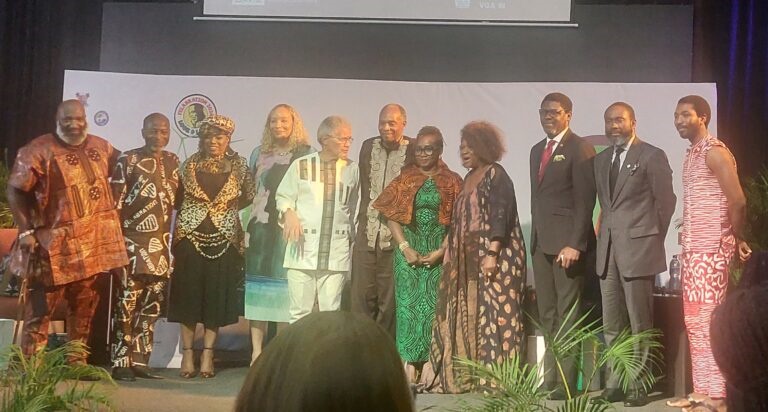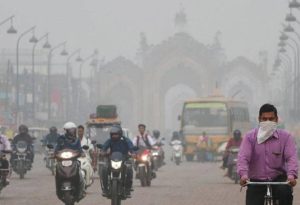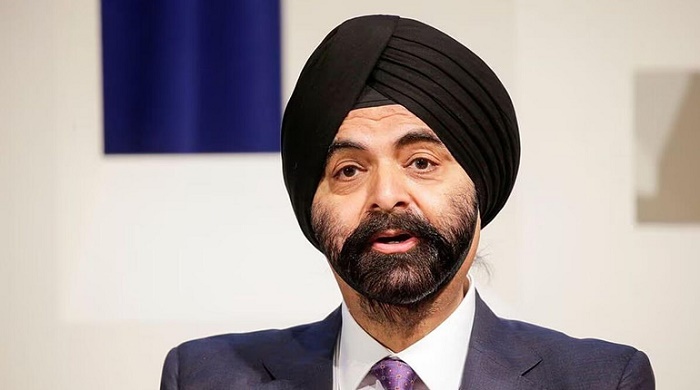A leading commodities player in Africa, AFEX, with support from the UK Government, has announce significant achievements across Nigeria, Kenya, Uganda, and Côte d’Ivoire, as it commemorates its 10th year reshaping the agriculture value chain in Africa, contributing to building sustainable food systems and creating lasting impact for farmers, agribusinesses, and communities.

Through their operations providing capital and storage infrastructure to farmers, processors and other parts of the value chain, AFEX is said to have remained steadfast in its mission to enhance food security, reduce post-harvest losses, and introduce liquidity into agricultural markets through efficient market structures.
Established in 2014 as the first private commodities exchange in Nigeria, AFEX has directly supported smallholder farmers by providing them with access to finance, high-value market opportunities, and crucial extension services. This has not only improved the livelihoods of these farmers but also enhanced their productivity and overall output.
Within the same period, AFEX has also grown its presence across the continent, expanding from Nigeria into Kenya, Uganda, and Côte d’Ivoire, and establishing regional commodity markets that facilitate cross-border trade while strengthening food systems throughout these regions.
In Nigeria, AFEX has expanded its farmer network to over 500,000 and traded over 1 million metric tons of essential crops such as maize, rice, sorghum, and soybeans. This trading volume has made a significant contribution to improving food availability and stability in its operational areas. Furthermore, through its financing platform, AFEX has injected over $250 million into agricultural value chains, ensuring that farmers have access to the capital they need to scale their production.
Since expanding into Kenya and Uganda in 2021 and 2022, AFEX has been bullish in the pursuit of their strategic Pan-African expansion goal to penetrate eight African countries in the next decade, promoting the efficient trade of commodities in Africa while supporting the AFCFTA’s objectives to boost regional trade integration on the continent.
Today, its East African operations have impacted over 30,000 farmers through financing and storage services, traded over 12,000 metric tonne and traded about KSH1,600,000,000. In its newest market, Côte d’Ivoire, announced at the beginning of 2024, AFEX has onboarded over a thousand farmers, and disbursed maize inputs across 155 hectares, boosting productivity and food self-sufficiency.
Commenting on the anniversary, the UK’s Deputy High Commissioner in Lagos, Mr. Jonny Baxter, said: “The UK is proud to have provided early-stage funding to AFEX 10 years ago, and to see the company grow with such success, enhancing agricultural productivity and bolstering food security in Nigeria. The agricultural sector stands as a vital pillar to Nigeria’s economy, playing a significant role in job creation and investment potential. We look forward to continuing to support Nigeria’s agriculture sector and the opportunities this provides for its economic growth.”
Group CEO, AFEX, Ayodeji Balogun, reflected on the company’s 10-year journey, stating: “These past 10 years have been about creating innovative solutions for African agriculture and developing sustainable ecosystems that empower farmers. As we mark this milestone on World Food Day, we are reminded that our mission is more critical than ever. Our goal is to continue building the infrastructure and platforms that will secure Africa’s food future.”
Speaking about British International Investment’s $26.5 million commitment to AFEX in 2023, Nigeria Coverage Director of the UK’s development finance institution (DFI), Mr. Benson Adenuga, said: “We are delighted to partner with AFEX to provide the necessary support to scale into a pan-African champion, driving agribusiness and strengthening food systems in multiple countries across the continent. Our commitment will support AFEX to construct 20 warehouses in strategic locations in Nigeria, Kenya and Uganda, increasing storage capacity for up to 200,000 farmers and underlining our mandate to support ambitious businesses in Africa.”
According to the British High Commission, a key element of AFEX’s impact lies in its investment in infrastructure: “Over the past decade, the company has developed a robust network of more than 200 warehouses across Africa, providing secure storage for agricultural produce and reducing post-harvest losses by up to 30% in some regions.
“By reducing post-harvest losses and improving productivity, AFEX is playing a critical role in enhancing food security, addressing the challenges of climate change and promoting sustainable agricultural practices across Africa.
“This commitment mirrors the global call to action on World Food Day to ensure that food systems are inclusive, resilient, and capable of feeding future generations.”

